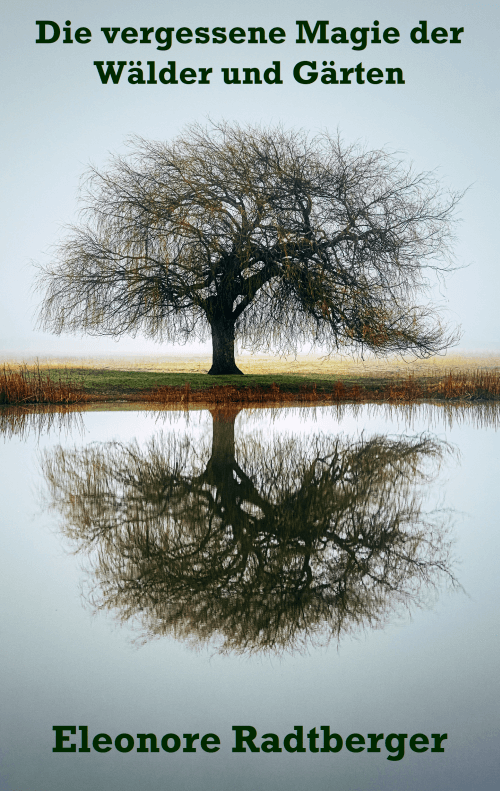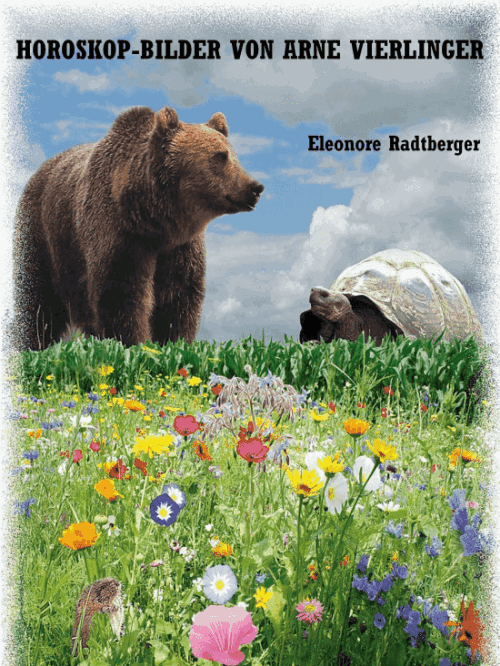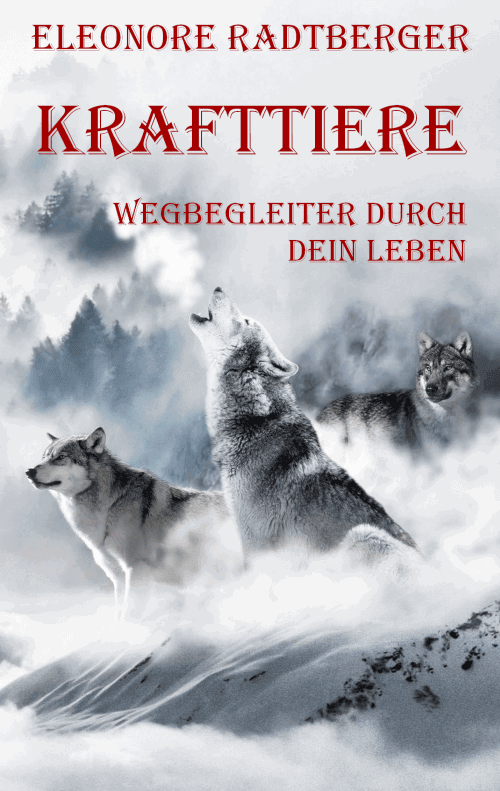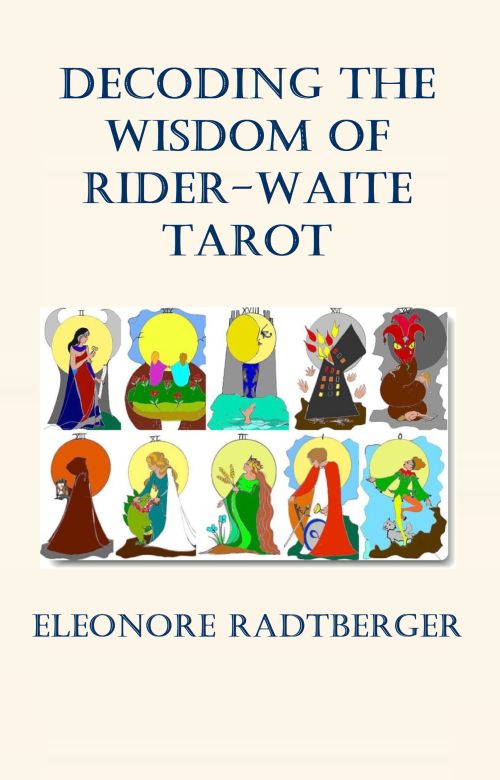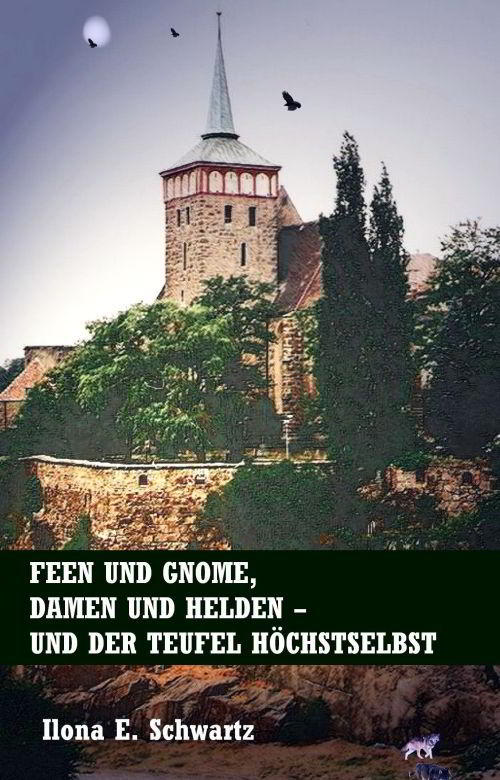
|
The Four Elements and their Importance in Esotericism and Spiritual Life
About Fire, Water, Air and Earth

Traditionally, the study of the four elements has occupied a very important place in esotericism, and in today's world many people are increasingly turning to this way of thinking, seeing and understanding the world. When we speak of the elements, we mean the four directions in all their correspondences. For example, the south is associated with fire, the west with water, the east with air and the north with earth. We know these classifications from the Tarot, whose four 'colours' are in turn correspondences of the elements.
The actual directions are of limited importance; it is their symbolic and spiritual 'geography' that interests us. The elements are also very important in Asian cultures, although this spiritual world has yet to be experienced.
In our tradition, which is largely rooted in the spiritual worldview of the Celtic peoples, we use images and associations from our world of experience that have been familiar to us for many centuries. On a certain level this no longer matters because it is the same world – but the symbolism is adapted. For example, a European would not have much to say when looking at a baobab tree, but an African could come up with all sorts of legends and symbolic stories about it.
For our ancestors, the number four was a sacred number, representing the four foundations of the earth, perhaps related to the elements. Each of the four has its own colour, number, instrument or keynote. For example, the earth is associated with the drum and the air with the flute. Astrology also assigns the different signs of the zodiac to the elements. The Tarot has preserved these teachings in coded form and passed them on to those who are interested and willing to learn.
Now that we know what each of the four directions represents, and we know what corresponds to air or fire and what the element represents, can this be of any use or help to us? It can, because the elements can be 'asked' or used for analysis in the same way as any other medium. Normally they are quite balanced in a person's inner landscape – of course this is not a fixed thing.

Book announcement: "Decoding the Wisdom of Rider-Waite Tarot"
By Eleonore Radtberger 👉 Available now – make sure you bookmark this page
A hot-blooded, very active and passionate person will certainly be more associated with the fire element than the others – after all, we are all different. It only becomes dangerous if one element is clearly dominant for too long, to the detriment of one or more of the others.
A person who only 'walks in the fire' runs the risk of being consumed by it sooner or later – a clear 'airhead' can lose touch with the ground – symbolically speaking. If someone has problems organising their daily life effectively or getting along with others, it is often worthwhile to look into this. Asking oneself "What am I missing, where is something out of balance?" or "What am I neglecting?" may lead to the realisation that the person is avoiding one of the four elements or living it to excess.
Of course, one of the four elements is paramount to a personality, but as with everything in life, balance is important. Whether it is food, exercise or passions, an extreme imbalance should not be allowed to persist for too long, otherwise the person will suffer both physically and mentally. A small voyage of discovery, or even an educational holiday, to the four directions is an adventure that can really pay off.

Fire – an image of activity
The element of fire – burning. Of course, this primarily refers to our inner fire, our fiery nature. We associate it with strength and anger, with a quick temper and burning passion.
The blazing flame is an image of activity – we use this expression in our language whenever we describe something that is strong and powerful. It can be an emotion – who has not experienced 'burning hatred' or even the 'fire of love'. We can be fired up or fly into a rage. We talk about hot temper and burning anger. When it comes to getting to the bottom of things, colloquial language is always a good detective – it usually puts us on the right track.
Fire is a blessing; it provides warmth, and therefore life, and it purifies. But it can also be a terrible enemy, once unleashed. It is associated with the south, its own direction. The sign of Leo, like Sagittarius and Aries, is associated with fire. These are signs of activity and strength, of departure and sometimes of battle. Fire is the element of the warrior as well as sexuality; it is desire as well as bravery. Courage and leadership, loyalty or enthusiasm belong to fire, but so do pride, rebellion, jealousy and destructive passions. Flames need fuel or they will consume themselves. People who tend too much in this direction are prone to it, for no one can dance on a hot volcano all the time.
Now, spiritually speaking, we never move in just one element, we have parts of all of them. But when a person is angry, when they cannot see an argument, when they 'see red', then they are all fire – that can be purifying, but it can also be destructive. Above all, it has to be the exception, otherwise our inner landscape becomes scorched earth.
People who suffer from a lack of drive, who are not doing well because of their own constant procrastination, whose fears overshadow their existence too much, have too little of this element in their lives. They need to look at it intensively and, in addition to other ways of helping, they need to bring more fire into their lives than they probably have in the past. This could be the colour red, for clothes or for furnishings. Candles, for example, are things that belong to fire, as are spicy foods. Music with fast rhythms, which you can feel and which has an invigorating effect, has something to do with it. Dancing is a good way to get closer to fire – but not ballroom dancing, just wild, rhythmic dancing to the point of exhaustion. Music with fast guitar riffs, for example, would be appropriate. The era of the great rock bands is certainly at home in the element of fire.
Associations with colours or animals vary slightly according to tradition, but red and dark orange are generally associated with this element. Salamanders and dragons are the animals of the element, and the corresponding season is midsummer. Legend has it that salamanders are fire-resistant and that they are the elemental creatures that belong to the south and therefore to fire.
Unfortunately, open fires or burning logs in the stove have become rare in our time, but a candle will do just as well for a meditative exercise: Darken the room and light a candle, look into the flame and let your mind wander. Think of things that belong to fire, enjoy the sight of the living flame and take it in. Fire brings warmth and strength into your life, it purifies and gives courage. Imagine that the flame is a little being in its own right with whom you share your thoughts. Just let it happen.

Water – our origin
In the beginning there was water – and it covered the whole earth. In a way this sentence from the creation story is quite true, for we all come from water – our very origin is in water. Even today, unborn children are protected and cradled in a bubble of water; it is their element. This is why newborn babies can swim – they are still rooted in the protective element and can move around in it. This is lost later and children have to learn to swim again as their path takes them out of the ocean of their beginnings.
No life without water is an undeniable fact that no one would question. But the element of the West, because that is the direction associated with it, stands above all for feeling and the subconscious. In the Tarot, the cups symbolise water and, as a whole, everything to do with feelings, especially those related to human relationships. "I am all water" is a saying we all know – it describes an extremely sensitive person who cries easily or is easily touched. Of course, it can also refer to mere sentimentality, but that word has a lot to do with posturing and also with superficiality, but that is not what is meant here.
Water has a cleansing quality; it washes away what weighs us down or perhaps even pollutes us. For this reason, springs were sacred to many peoples and shrines were often built where they were found. There were various spring gods or nymphs who were seen as friendly and helpful to people. And even today, the sight of a spring, like a lakeshore, touches something in us. The sea, with its power and living beauty, is something else that can captivate us emotionally. The element of water reminds us of our own home, the landscape of our inner being. Children can play and frolic in water for hours; they love the element.
Astrology recognises three water signs: Scorpio, Cancer and Pisces. These three are characterised by strong emotionality, in the sense that they feel very strongly about their fellow human beings and are very sensitive to vibrations. They are very compassionate, but also very easily hurt. They make their decisions 'instinctively' if at all possible – the element of water is constantly in flux and is indeed 'moody'. Water is deceptive – what lies beneath the surface appears to be spatially displaced. Anyone who has ever tried to catch a fish with their hand knows this.
But however important the element is, those who are ruled by water lack consistency and, in some respects, firmness. A person 'dilutes' his life, so to speak, and loses contact with the earth and his roots. Even if water is the origin, at some point we must come ashore. Conversely, a person who lacks this element in his life will not be able to keep in touch with his inner self, with his feelings and therefore with his heart. There is also likely to be a lack of harmony, as water stands for this as well as love, friendship and peace.
Traditionally, the element of water is associated with blue and blue-green colours, and instruments associated with it include harps and chimes. All beings who live in this element can represent it, but the Undines are generally considered to be the elementals who represent water.
Those who suffer from a certain hardening or blockage should work with water and become more aware of this element.
Meditative exercise: Take a cup, a goblet, a bowl – fill it with pure and fresh water. Hold the vessel in both hands and realise that it is bringing the flow of life itself to you. Close your eyes and drink slowly and enjoyably, emptying the vessel to the bottom.
Or: Go to a lake, river or stream – dip your hands in the water and feel the movement. Imagine the cool element washing away all that is dry and dead. Water is life – and you are part of it.

Air – the element of lightness
A thunderstorm clears the air – this common saying is rarely related to meteorology, but rather to human weather. We are all familiar with the crackling in the room when tensions arise that strain the atmosphere, and the discharge that often manifests itself as a heated discussion or a tangible argument. Afterwards, everything is resolved and the emotional weather has cleared. Or at least it should be, because lingering resentment is harmful.
Anyway, the element of air also stands for communication between people and all things light. "He's a real airhead", people used to say, meaning a person who couldn't commit and didn't take anything too seriously – not even interpersonal relationships. Airy and light, that's probably how you'd describe such a person.
People born under the astrological air signs of Aquarius, Virgo and Libra often impress with their inventiveness and enviably easy way of making friends. They are open-minded and love spontaneous ideas and new experiences. Of course, this gift can come with a certain superficiality, but the truth is that no one is 'made' for just one element. This would not be very positive in this case either, because at some point ideas have to take shape, contacts have to be maintained and a goal has to be achieved.
Group work or large movements in the sense of new social trends belong to air, as do inventions and new ways of doing things, because air is not only the element of lightness, but also of mind and intellect. In the Tarot, the sword is the symbol of air: the blade of reason. This includes writing, art, intuition, language, music and the transmission of knowledge and learning. If fire is enthusiasm and power for an idea, and water is the emotional cradle, then air is organisation and formula.
When something comes to a standstill, the image for this is an atmosphere without a breath of air, without mental movement. The phrase 'a breath of fresh air' best describes how the air element can bring life back into stagnation. And if the invigorating element in one's life is too weak, one is in danger of becoming lonely, of being paralysed by mental rigidity in the long run. Such a person will have great difficulty in communicating with others and in opening up to new things. Anyone who thinks they can do without air should consider how important it is.
A person can go without food for many days or weeks before the body gives up. It takes much less time to go without water. But without air, we could only survive for a few seconds. So anyone who feels that their life lacks a 'breath of fresh air', or that their intelligence is idle, or that they are simply bored, should pay special attention to this element. And it's very easy: all you have to do is get out of the house, go for a run or a walk. Perhaps towards the east, because this aspect belongs to the air.
Meditative exercise: Stand on a hill, stretch out your hands and listen to the rustling of the leaves in the gentle breeze – feel and enjoy the wind caressing your face. Watch the clouds pass by, listen to the sounds around you, let go to have. Allow your mind to move freely like the leaves in the wind, letting the old go and the new come.
The instrument traditionally associated with the air is the flute. Music of this kind will strengthen the air element in your home, as will fresh yellow or orange. If you want to improve your contact with an element, surround yourself with things associated with it. As long as you don't lose contact with the earth, you can't get too 'airy', especially when our intelligence is required.

The earth – clarifies the mind
You have your feet firmly on the ground, you are not 'detached' or have what is commonly called a 'down-to-earth' attitude. This is how we talk about people who can 'get their hands dirty' or who are very grounded in reality – they belong to the earth element. It stands for many things, including material and order.
It is not for nothing that people with nervous or mental disorders used to be advised to chop wood or do gardening. Dealing with such tangible and substantial things (like manual labour) really does clear the mind – it brings you 'back down to earth', so to speak. This is why many people whose work is not physically demanding take up sport in their spare time – this balance is necessary to keep them from becoming unbalanced.
A lack of the earth element can be unhealthy for the emotional state, because without a connection to the ground, emotionality can easily get out of control. This is also true of fire – in Buddhist monasteries young monks are often given very monotonous tasks, such as raking the paths for hours on end. It is said that this helps to counteract the desire to do something extraordinary and gain fame, which corresponds to fire and is rather contrary to the life of a monk. Constant contact with the earth during such work strengthens the connection with reality and also helps to see oneself as part of the whole.
Caution is also needed when the opposite is the case. We know of people who are compulsively tidy at home or at work, almost to the point of obsessive cleanliness. They have turned to the earth element to remove a 'mess' in themselves – or in their circumstances – and have gone overboard. Fear of letting go can also lead a person to literally 'bury' themselves in the earth. When this happens, the element is dominant.
Those who feel powerless, homeless and out of place need the empowering experience of contact with the earth. Walking barefoot is a good remedy – and not just outdoors. The earth is also the domain of health and vitality, and it is surprising and wonderful to approach this power. North is a compass direction and the drum is an instrument.
You may have smiled with amusement when you heard of people going into the forest in groups to hug trees. But this is one of the best ways to 'ground' yourself, to get in touch with the power of the earth. Simply place your hands on the trunk of a tree as you walk – perhaps in the woods or in a park – close your eyes and just allow yourself to feel it. In time you will feel the power flowing through you – from the surface of the earth into everything that grows out of it and indeed into everything that is on it. Unlike the power of fire, the power of the earth does not blaze – it is of tremendous consistency and tangibility.
Meditative exercise: Go out and look north, put your hands on the trunk of a tree, put them on the ground where you are standing. The tremendous power of the earth is there for you. Allow it to flow through you. Your heartbeat is the drum, beating in time with life itself.
Traditionally the colour green is associated with the earth – but the colours of the elements are not governed by laws, they are correspondences. Anyone who associates colours with the elements other than those traditionally associated with them is free to do so.
Many people see brown as the colour of earth, or green as the colour of water instead of blue. This is up to each individual, as it depends on the connection – and you should be able to fully engage with it. The colour that matches your own image is definitely the right one.
It would defeat the purpose if you had to force yourself to associate the 'right' colour with each element, successfully preventing any contact. The elements are not closed blocks; they belong together, they flow into each other and they need each other – just as we need them.
© "The Four Elements and their Importance in Esotericism and Spiritual Life: About Fire, Water, Air and Earth". An article by Eleonore Radtberger, 2011. Image credits: Element Fire, Element Water, Element Air, Element Earth, CC0 (Public Domain Licence).
– Reviews, book presentations and essays
– Squeakwood, the wonder mouse. A true story
– The story of the Cottingley Fairies
Discover more articles! Use the search function:
English archive:
More reviews, book presentations and essays
2024/2025
German archive:
2024 |
2023 |
2022 |
2021 |
2020 |
2019 |
2018 |
2017 |
2016 |
2015 |
2014 |
2013 |
2012 |
2011 |
2010 |
2009
Become a writer for Pressenet! Write articles for our online magazine on trending topics such as best books to read, health and wellness, technology and gadgets, business and finance, travel and tourism, lifestyle and fashion or education and career. Info: Become an author
Sponsors and investors are welcome: If you found our articles interesting, we would be grateful for a donation. Please also recommend us to your networks. Thank you very much!
Sitemap About Privacy Policy RSS Feed
